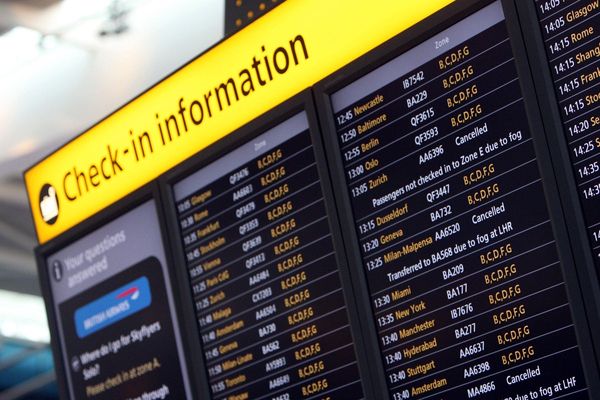Americans' view of the outlook for the U.S. economy dimmed slightly over the past month, even as inflation pressures continued to come off a boil, the new IBD/TIPP Poll finds.
The overall IBD/TIPP U.S. Economic Optimism Index slipped six-tenths of a point to a gloomy 42.3 in January. The index has been stuck in pessimistic territory, below the 50 neutral level, for 17 straight months, but it's still 4.2 points above the 11-year low matched in August.
A steady 55% of adults polled think the U.S. economy is in a recession, down from 58% in November and 61% in October.
Financial Stress Eases
The U.S. Economic Optimism Index reached its highest level over the past year, 44.7, in September, as President Joe Biden moved to forgive up to $20,000 per borrower in federal college loans. Yet Biden's student-loan giveaway now faces an uphill battle before the Supreme Court that will be resolved by June.
For now, a moratorium on federal student loan payments remains in effect, helping keep financial stress on the wane. A 35% plunge in gas prices from their mid-June peak has obviously helped.
The IBD/TIPP Financial-Related Stress Index fell six-tenths of a point to 64.7, the lowest since last February. Readings above 50 mean financial stress is rising. October's 69.5 level was just below April 2020's 69.8 record high in polling going back to December 2007.
Job growth remained solid in December as employers added 223,000 workers. Annual wage growth faded to a still-strong 4.6%. Now just 21% of adults say their wages have kept pace with inflation, down from 22% in December.
With layoff announcements on the rise, 31% of adults are concerned about job loss in their household. But that's down from 32% last month and 38% in October.
Biden Approval Rating Jumps As He Pivots Toward Center
U.S. Economic Optimism Index Components
The IBD/TIPP Economic Optimism Index is a composite of three major subindexes. They track views of near-term prospects for the U.S. economy and personal finances, along with support for government economic policies.
In January, the six-month outlook for the U.S. economy slipped 1.5 points to a downbeat 36.2. In June, this subindex got as low as 30.6, the lowest level since July 2008, when the country was mired in a recession.
The personal finances subindex slipped three-tenths of a point to 49.9, edging back into pessimistic territory. July's 45.3 reading was the weakest in the history of the IBD/TIPP Economic Optimism Index dating back to February 2001. Views of personal finances had reached a bullish 59.7 in July 2021, before inflation took off.
The gauge of support for federal economic policies held at 40.7. August's 35.3 reading, before the student loan forgiveness, was the lowest level since January 2014. That gauge got as high as 56.4 in June 2021, after more rounds of stimulus checks and amid a big push for more expansive policies from President Biden. Now, however, stimulus has lapsed and the Federal Reserve is hiking interest rates to try and rein in the inflation to which stimulus contributed.
Get Alerts To Stocks Near Buy Points With IBD SwingTrader
Stock Market Investors Neutral On U.S. Economy
The U.S. Economic Optimism gauge slipped four-tenths of a point among investors to 49.6, a hair below the neutral level. IBD/TIPP counts as investors those respondents who say they have at least $10,000 in household-owned mutual funds or equities. Stock market investors are wavering as they await clearer signals about the Federal Reserve rate-hike outlook. Hope that a downshift in wage growth will allow the Fed to keep from hiking its key rate past 5% has helped kick-start a new rally.
Make sure to read IBD's daily afternoon The Big Picture column to get the latest read on the prevailing stock market trend and what it means for your trading decisions.
As of Monday's close, the Dow Jones Industrial Average has rallied 16.7% from its bear-market low on Sept. 30 but remains 8.9% below its all-time closing high on Jan. 4, 2022. The S&P 500 is up 8.8% from its Oct. 12 low, but still 18.9% off its peak. The Nasdaq has climbed 4.1% since hitting bottom on Oct. 14 but is still 33.8% off its record high.
Time The Market With IBD's ETF Market Strategy
Investors remain far more upbeat than noninvestors. Among noninvestors, the IBD/TIPP Economic Optimism index fell 1.2 points to 38.2, deeply pessimistic.
The January IBD/TIPP Poll reflects online surveys of 1,356 adults from Jan. 4-6. The results come with a credibility interval of +/- 2.8 points.
Please follow Jed Graham on Twitter @IBD_JGraham for coverage of economic policy and financial markets.







